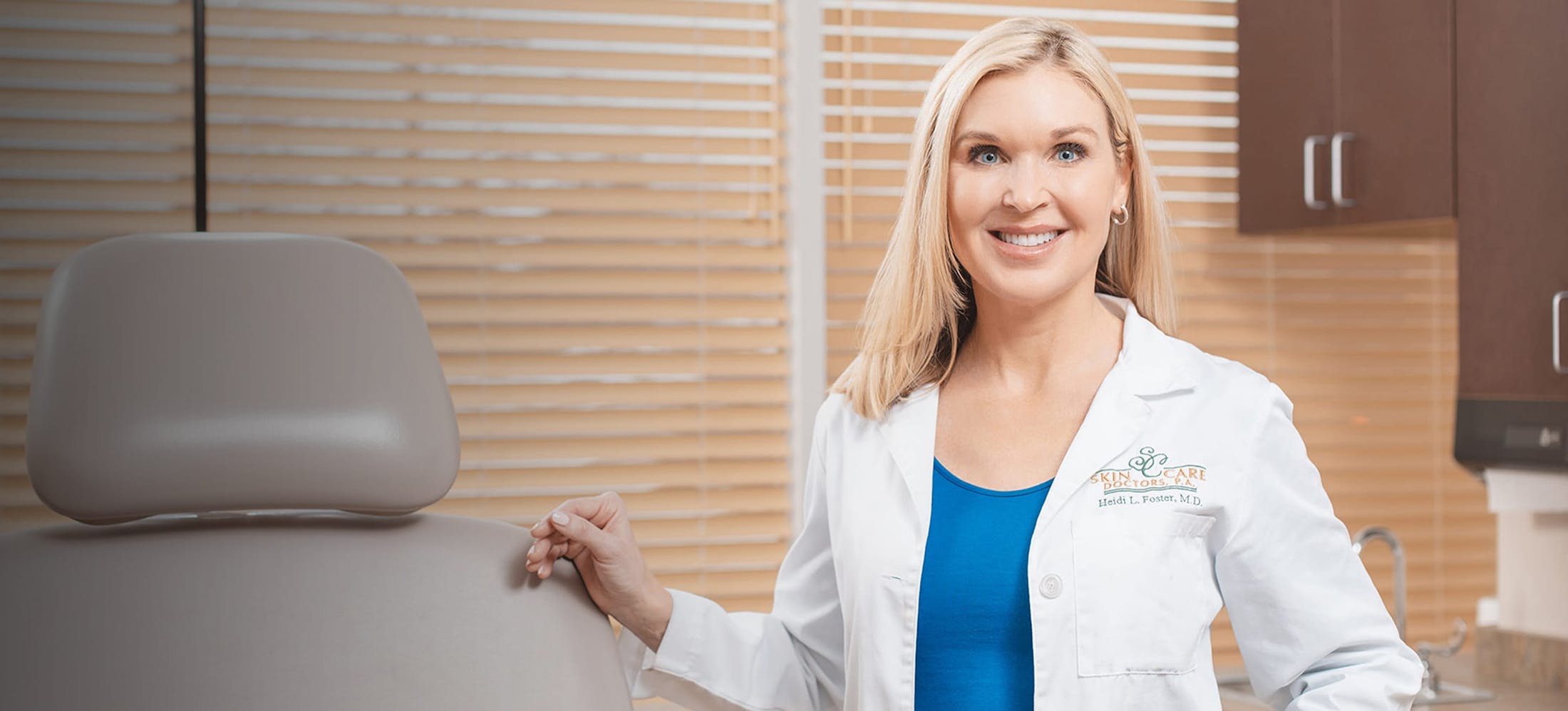Chemical peels are a popular cosmetic dermatology treatment performed by our medical providers at Skin Care Doctors to improve the appearance of the skin on the face, neck, and hands.
What Are Chemical Peels?
Chemical peels are a cosmetic dermatology treatment that involves applying a medical-grade chemical solution to the skin, which makes the top layer peel off, revealing the smoother, younger-looking skin beneath. Chemical peels can treat many skin concerns, including fine lines, wrinkles, acne, hyperpigmentation, and uneven skin tone. They are available in a range of strengths and formulations, making them a versatile treatment option for various skin concerns.





